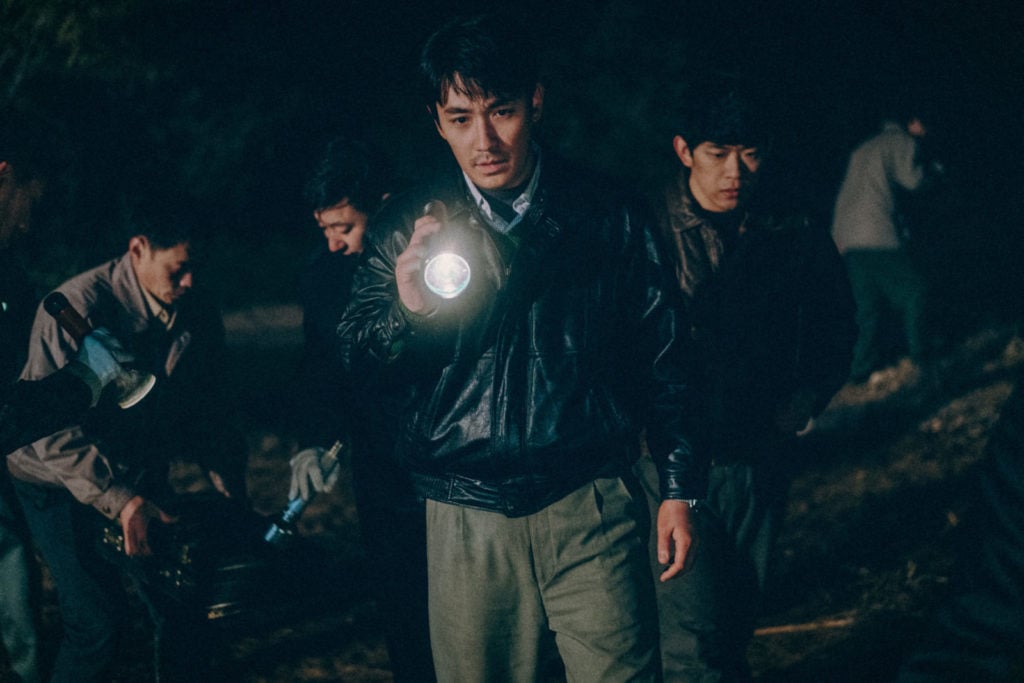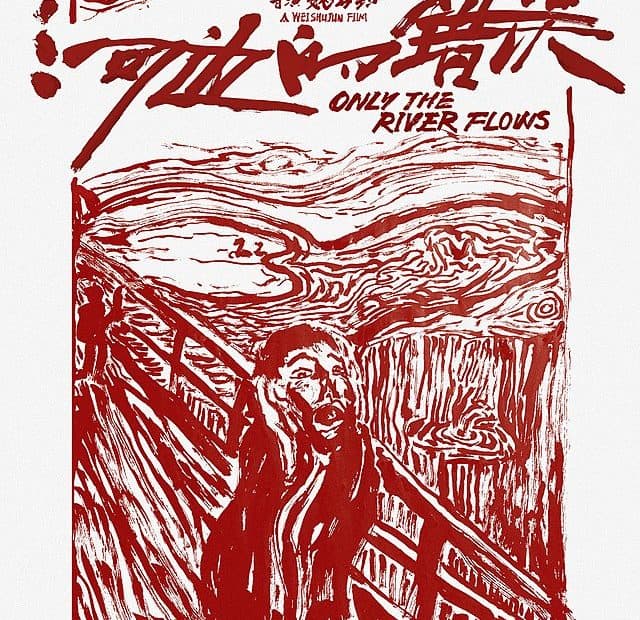We do not understand destiny, and that’s why I have made myself destiny. I have assumed the foolish and incomprehensible face of the gods.
Marcel Camus
That quote opens Only the River Flows (He bian de cuo wu), which is the third feature directed by Shujun Wei, following Striding Into the Wind (Ye Ma Fen Zong 2020) and Ripples of Life ( Yong an Zhen Gu Shi Ji 2021). The film was presented in the Un Certain Regard section of the Cannes Film Festival. It is based on Yu Hua’s short novel Mistakes By The River. When I interviewed the director, that was one of the topics we discussed. The story is set in Banpo Town in rural China. A woman’s body is found by the river. Ma Zhe (Yilong Zhu), chief of the criminal police, leads the murder investigation that results in an obvious arrest.
The man arrested is simply referred to as the madman, and he had a connection to the victim. At the risk of stating the obvious, things are not as straightforward as they seem. A cassette tape is found in a handbag near the body, containing a recorded message, generating further complications in the case. Ma Zhe also has domestic worries. His wife is expecting a baby, but it’s discovered that the foetus has a genetic disorder which might cause problems. The pressure of these circumstances seems to take its toll on Ma Zhe, who gradually seems to lose his grasp of reality, or does he? If so, is it congruent to how the spectator loses the grasp of the plot?

Take me for a drive to the coastline
Lost in the Plot – The Dears.
Pull me to the depths of the sea
Leave me in the middle of the ocean
I can walk the rest of the way
Only the River Flows?
Some spectators might vexingly run for the burial plot, hoping to find threads that connect the loose points in the story. Others, like me, will happily get lost in whatever cinematic circumstances the plot (or lack thereof) will get them into. Ma Zhe’s investigation sets up its headquarters in an abandoned cinema (an expression scarily close to a tautology), where the projection booth plays a pivotal role. The film is one of the year’s most pleasing to the eye. That goes for the auditory qualities, as well. The director studied Sound Design at university, and there is ample proof in the film of how important that aspect of cinema is to him.
Only the River Flows is shot by Chengma Zhiyuan, largely on 16mm, save for one sequence, which doesn’t merely provide a retro look but a highly cinematic one. The blocking is excellent, and the colour scheme contains brown and blues. If it is a film noir, it’s not only dark, but it also plays with the themes of the abyss in a manner comparable to Carax’s Annette. While that particular film was shot digitally, Only the River Flows joins films like Sobre todo de noche in the fruitful utilisation of celluloid to create a unique artistic experience containing several meta layers.
Whatever destiny holds in store for us, it might be preferable to let it run its course rather than vainly trying to control or become destiny. That might be one of the truths you will bring back from watching this endlessly fascinating work. Only the River Flows didn’t win any awards at Cannes, but it will be highly rewarding for anyone who is game. Hopefully, Shujun Wei will be able to continue to grow on his path as a filmmaker.

